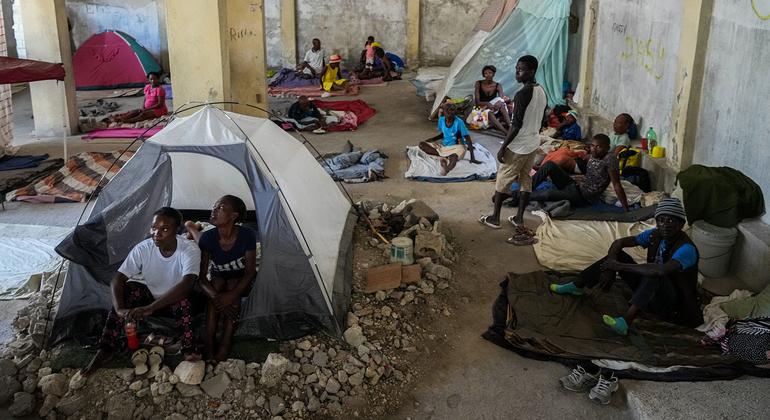Haiti is facing a deepening crisis, with challenges ranging from political instability to rising violence and food insecurity. The situation has been further worsened by months of brutal gang violence that has claimed thousands of lives in 2024 alone. Carl Skau, Deputy Executive Director of the United Nations World Food Programme (WFP), recently visited Haiti and described the crisis as the worst since the 2010 earthquake. He highlighted that half of the population, around five million people, are acutely food insecure, with over a million facing Emergency level hunger.
Skau emphasized the need for a comprehensive response to the crisis, combining political, security, and humanitarian efforts. He noted that while emergency aid is crucial in the most affected areas like Port-au-Prince, there is also a need for long-term resilience and development interventions to break the cycle of poverty and insecurity. The crisis is not confined to one region, with over 90,000 people displaced in the Port-au-Prince Metropolitan Area and disruptions in trade, rising inflation, and shortages of essential supplies affecting the entire country.
The WFP official stressed the urgency of replenishing aid supplies on the ground, as resources are starting to run out. He highlighted the importance of sustained access to the international airport and the opening of the port in Port-au-Prince to facilitate the delivery of humanitarian assistance. Skau called for a differentiated response, with emergency aid focused on the most affected areas while also providing development support in other parts of the country. The situation in Haiti is dire, and a coordinated effort is needed to address the multiple challenges facing the population.
The ongoing crisis in Haiti reflects a complex interplay of political, security, social, and economic factors that have been escalating over the years. The impact of gang violence, displacement, food insecurity, and shortages of essential supplies is being felt across the country, with millions of people struggling to meet their basic needs. The situation calls for immediate humanitarian action, as well as long-term development strategies to address the root causes of the crisis and build resilience in vulnerable communities.
As Haiti continues to grapple with these challenges, the international community must step up its support to provide much-needed aid and assistance to the affected population. The WFP’s assessment of the situation highlights the urgent need for sustained access to the country and the replenishment of aid supplies to prevent further deterioration of the crisis. It is essential to prioritize the most vulnerable populations, particularly those facing Emergency level hunger, and work towards sustainable solutions that can break the cycle of poverty and insecurity in Haiti. The crisis in Haiti is a stark reminder of the importance of international solidarity and collective action in addressing humanitarian emergencies and supporting the most vulnerable communities around the world.









